NDH Masala's Political Spice-Storm: President's Pic as Profile, Top Leaders as "Brand Ambassadors" Shakes Nepal
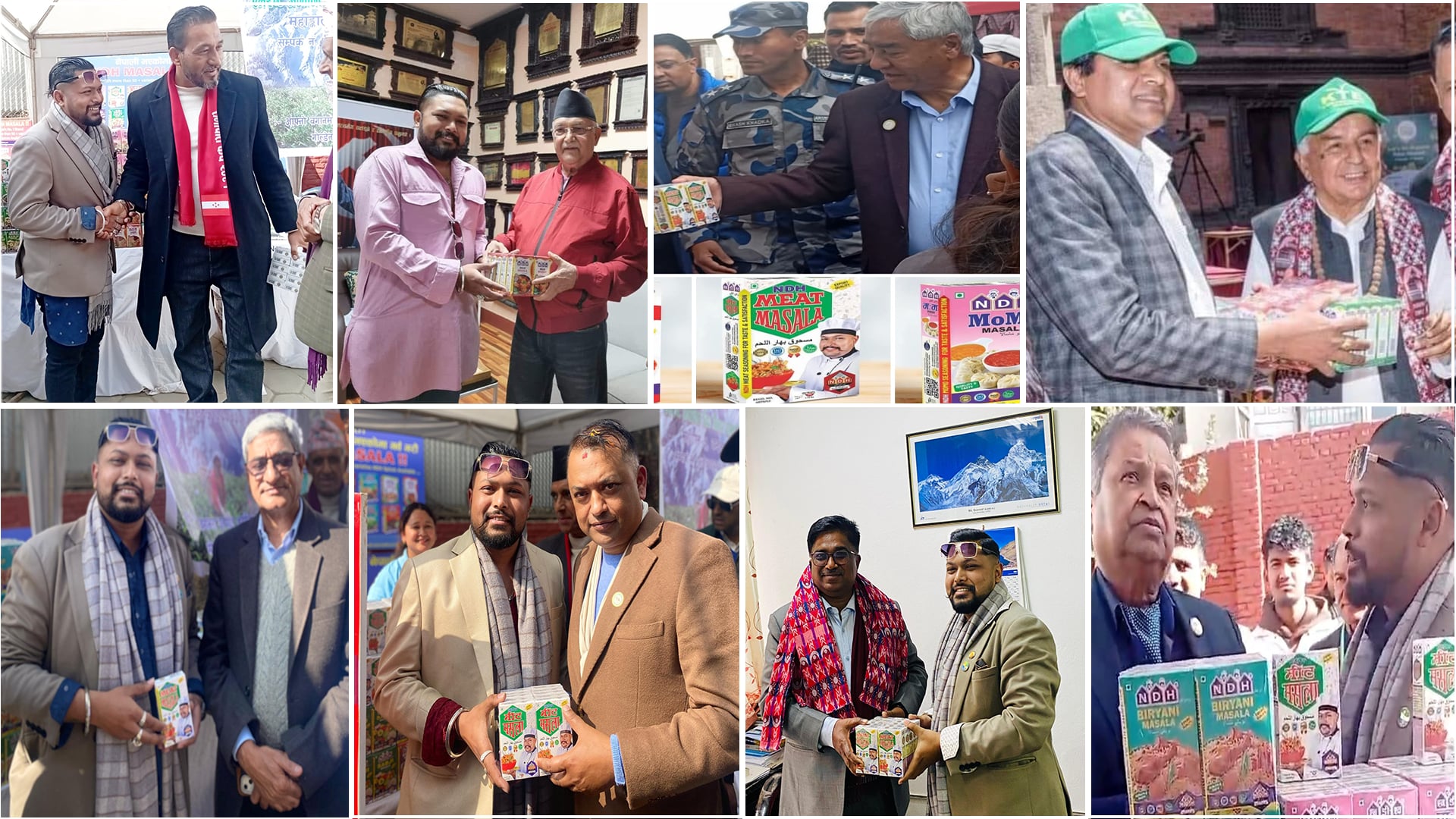
Kathmandu, Nepal – In the usually aromatic world of spices that add zest to our daily meals, a brand named "NDH" is currently spicing up Nepal's political scene, leaving a bitter taste of controversy. The audacity reached its peak when the brand brazenly used a photograph of Nepal's current President, Ram Chandra Poudel, as its Facebook page's profile picture, audaciously presenting itself as the purveyor of a "Supreme Presidential Masala"! But this is merely the tip of the iceberg. The brand's blatant mimicry of India's iconic MDH Masala – from its name to its packaging – and its parade of so-called top national leaders in its promotions have made a mockery of intellectual property and ethical business practices. This entire episode raises grave questions about the shameless extent of collusion between politics and commerce.
For anyone familiar with MDH Masala, the resemblance of NDH's packaging is startlingly obvious – it’s a mirror image. The three-letter name, the packet design, even the font style, are all strikingly similar to the long-established and respected Indian brand. This isn't creative inspiration; it's a clear case of outright imitation. Critics have labeled this "intellectual poverty" or "creative laziness." Such a copycat trend not only highlights a drought of original thought and innovation in Nepal but also threatens to break the backs of genuine Nepali entrepreneurs and brands struggling to stand on their own.
The brand's appetite for political connections and publicity doesn't stop there. Having made the President's image its social media identity, NDH Masala had previously stirred controversy by featuring Home Minister Ramesh Lekhak in its promotional materials. A post on May 7th, at 8:10 PM, showed Minister Lekhak with an NDH promoter, holding a box of their spices.
The list of such "endorsements" is long and seems to be growing daily. A scroll through NDH's social media pages reveals a gallery of Nepal's so-called 'big' leaders smilingly promoting or receiving their spices. This includes former Prime Minister Sher Bahadur Deuba and Prime Minister KP Sharma Oli, Nepali Congress leader Ganesh Lama, former Minister Raj Kishor Yadav, renowned industrialist Binod Chaudhary, and Member of Parliament Gagan Thapa, among many others whose images have been similarly misused (the plethora of photos posted on social media are testament to this). It appears NDH Masala has left no political party or ideology untapped in its quest for "celebrity endorsers."
These activities have raised a barrage of serious questions in the minds of ordinary citizens:
- Why and how are individuals holding the nation's highest offices – from the President to the Home Minister, former Prime Ministers, and MPs – appearing in the promotional campaigns of a private commercial company? Is this consistent with the dignity of their positions?
- Did these distinguished personalities give their written or oral consent for their images to be used in commercial advertisements, and in the President's case, as the page's very profile picture? Or is the company unscrupulously misusing their positions and prestige without permission?
- And on what credible survey, data, or official certification does NDH Masala base its loud claims of being "Nepal’s No.1 Brand"? Or is this just another gimmick to deceive consumers? The company has offered no satisfactory answers.
By associating itself with respected figures, especially those in positions of power and public trust – even the Head of State – NDH is deploying a crude but unethical marketing strategy to its extreme. By showcasing faces people trust, NDH Masala is clearly making a cunning attempt to cloak the questions surrounding its originality under a guise of false legitimacy and credibility.
Such practices not only expose the laxity of oversight in our markets and politics but also reveal how deep the game of political patronage might run. When public officials openly engage in promoting private businesses, the danger of conflicts of interest and misuse of power becomes severe. There's a tangible risk that ordinary consumers, misled by such promotions ("If a big shot is promoting it, it must be good!"), might end up buying counterfeit or substandard goods. This conduct not only discourages honest entrepreneurs and fosters unfair competition but also casts a dark shadow on political impartiality. It sends a message that anything is possible with access and influence, shaking the common citizen's faith in the system itself.
While the legendary MDH was known for "Asli Masale Sach Sach" (Real Spices, Truly True), NDH Masala seems intent on serving Nepalis "Asli Confusion Pakka Pakka" (Real Confusion, Definitely Definite). People in the market have even started joking that the Home Minister's earnings are invested in this brand, and he'll become a full-time spice merchant after his term ends! NDH's "spicy" antics like these are now making Nepal's political environment excessively pungent, according to commentators. It seems NDH is happy to serve us a concoction flavored with political connections, a dash of celebrity seasoning, and a generous dollop of self-proclaimed greatness. Perhaps next, they'll brand themselves the "Official Royal Masala of the Republic," with a group photo of top leaders on every box! People are now even saying that this masala's name should be changed to 'Nepali Congress Masala,' so that with prominent Nepali Congress leaders like Gagan Thapa and other party members acting as its brand ambassadors, everyone can enjoy cooking traditional aromatic mutton.
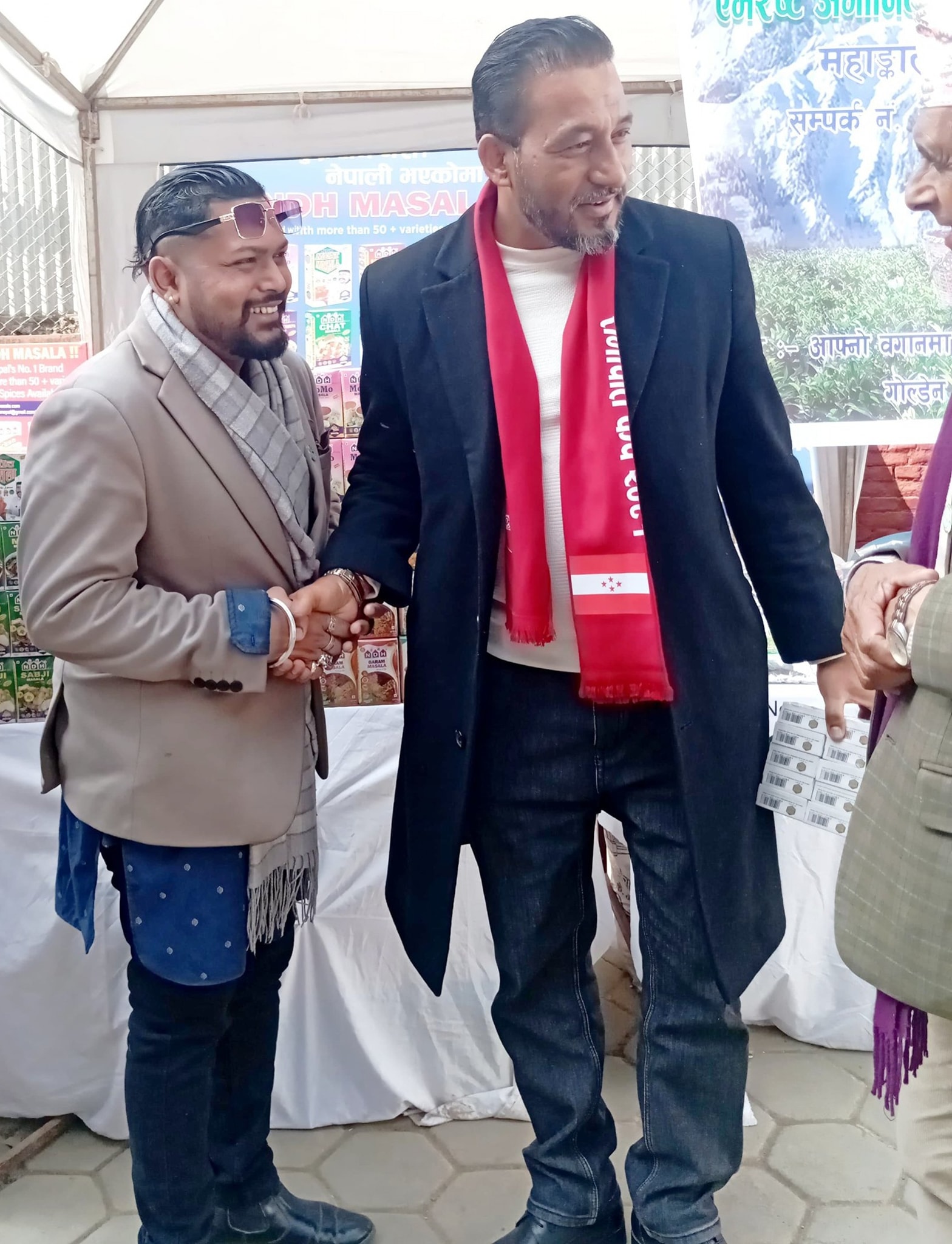
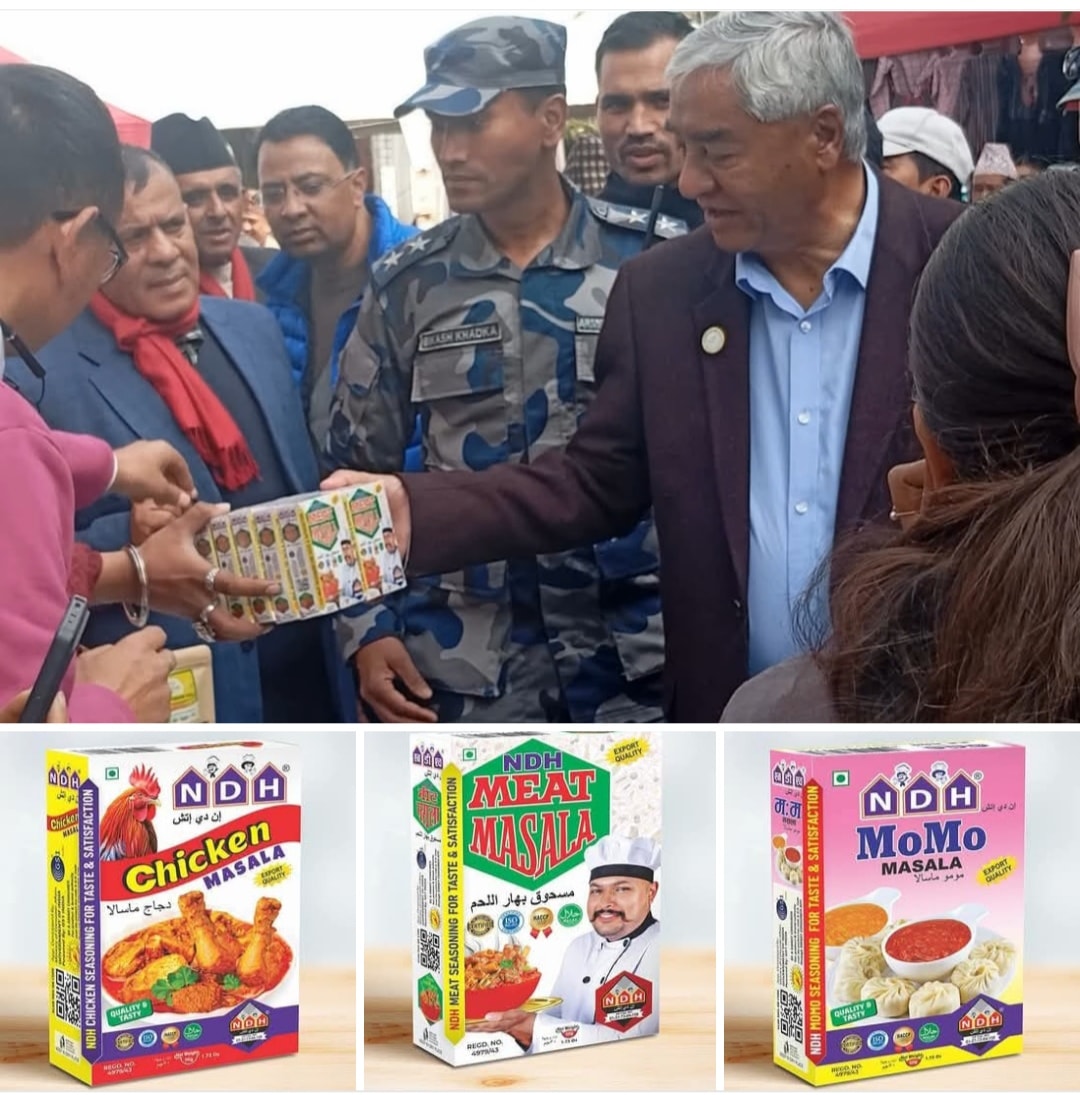
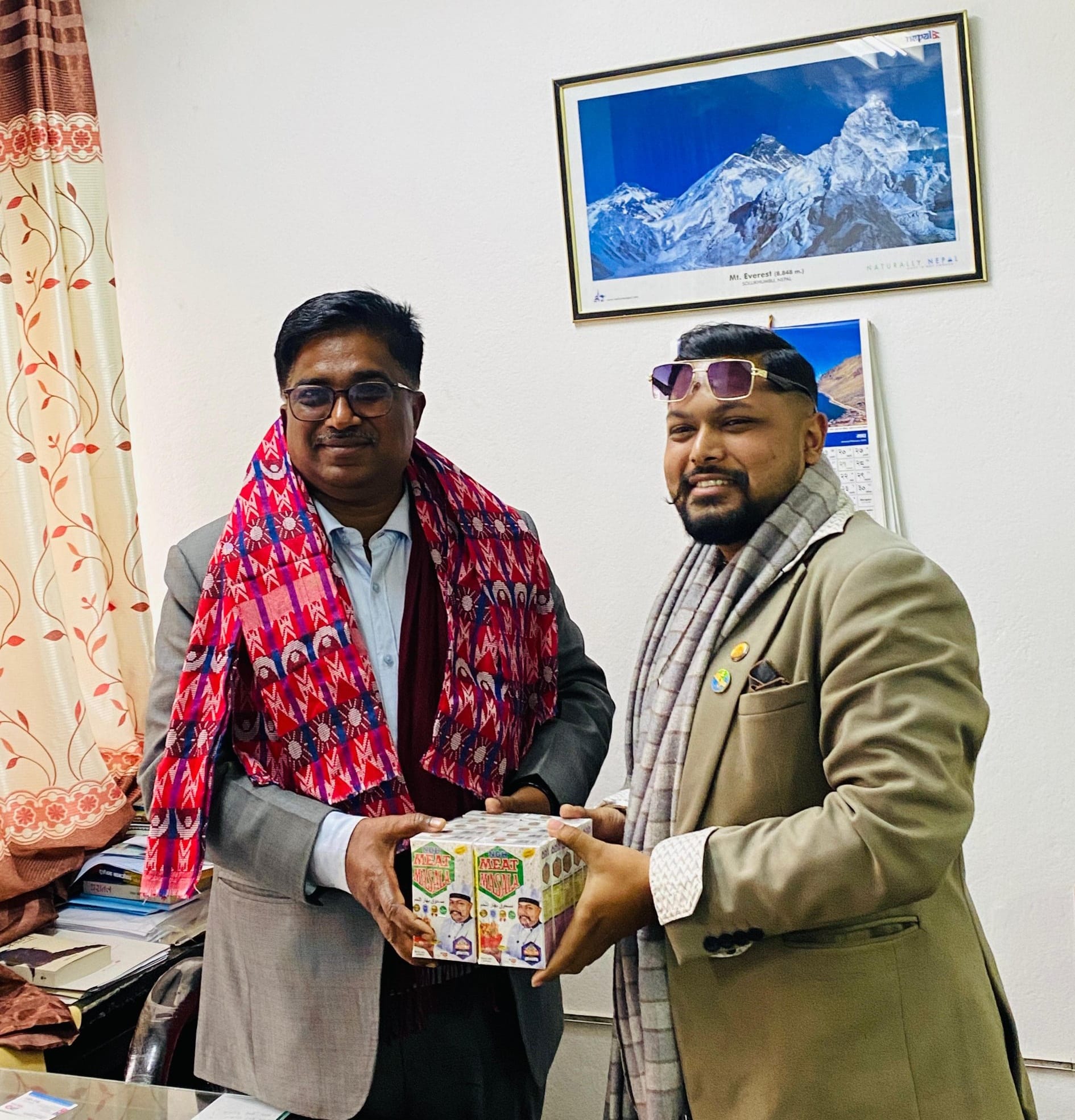
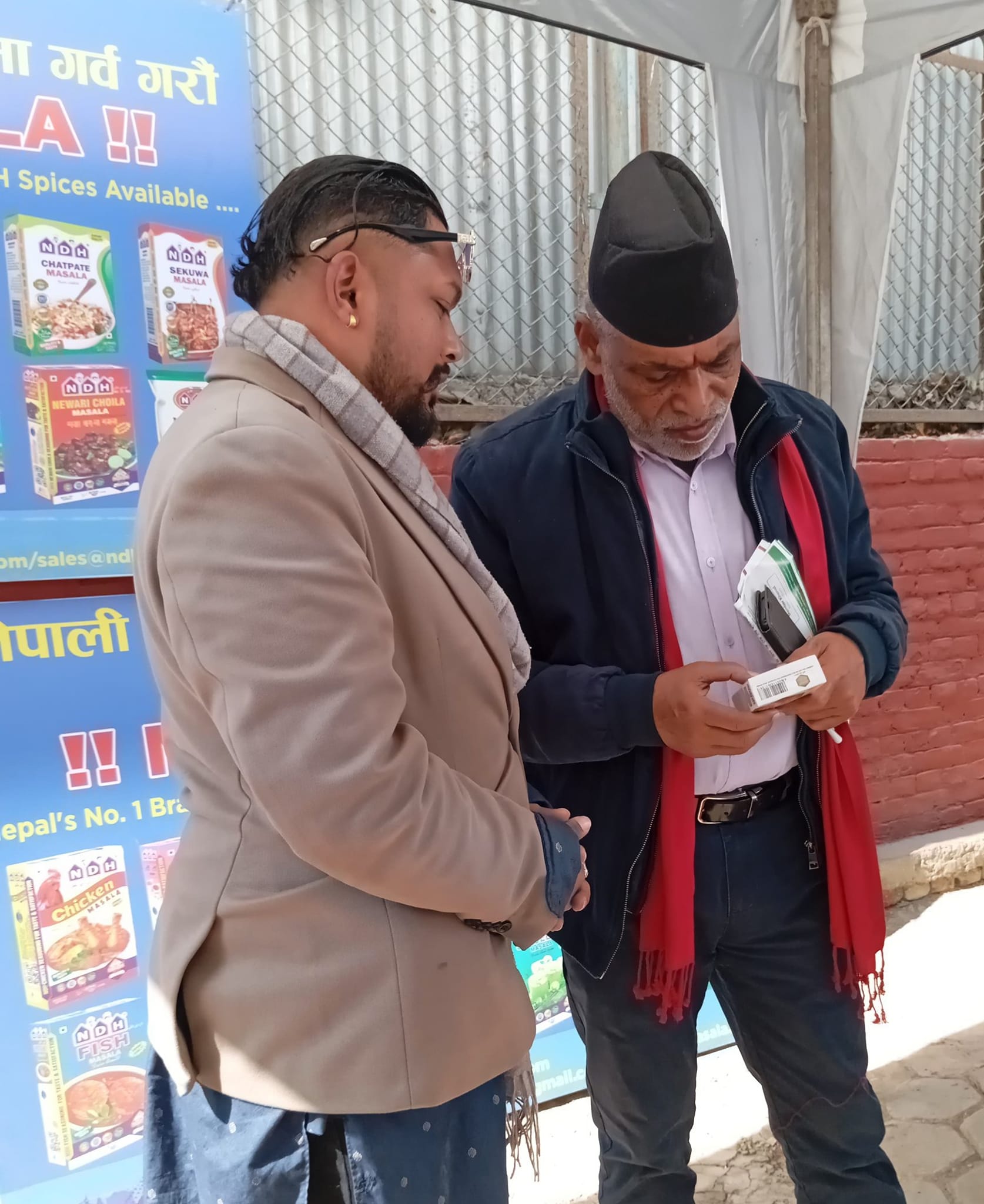
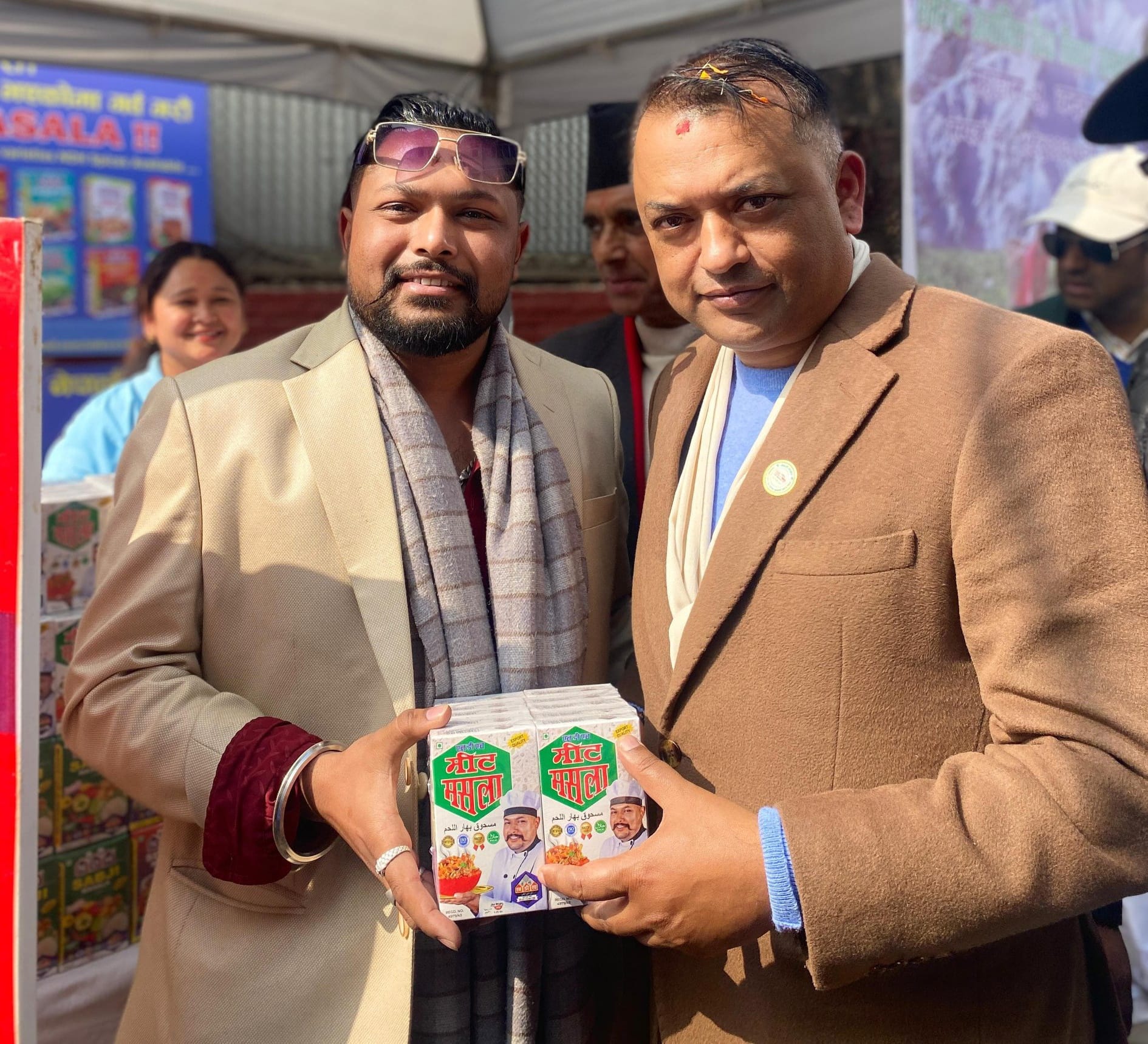
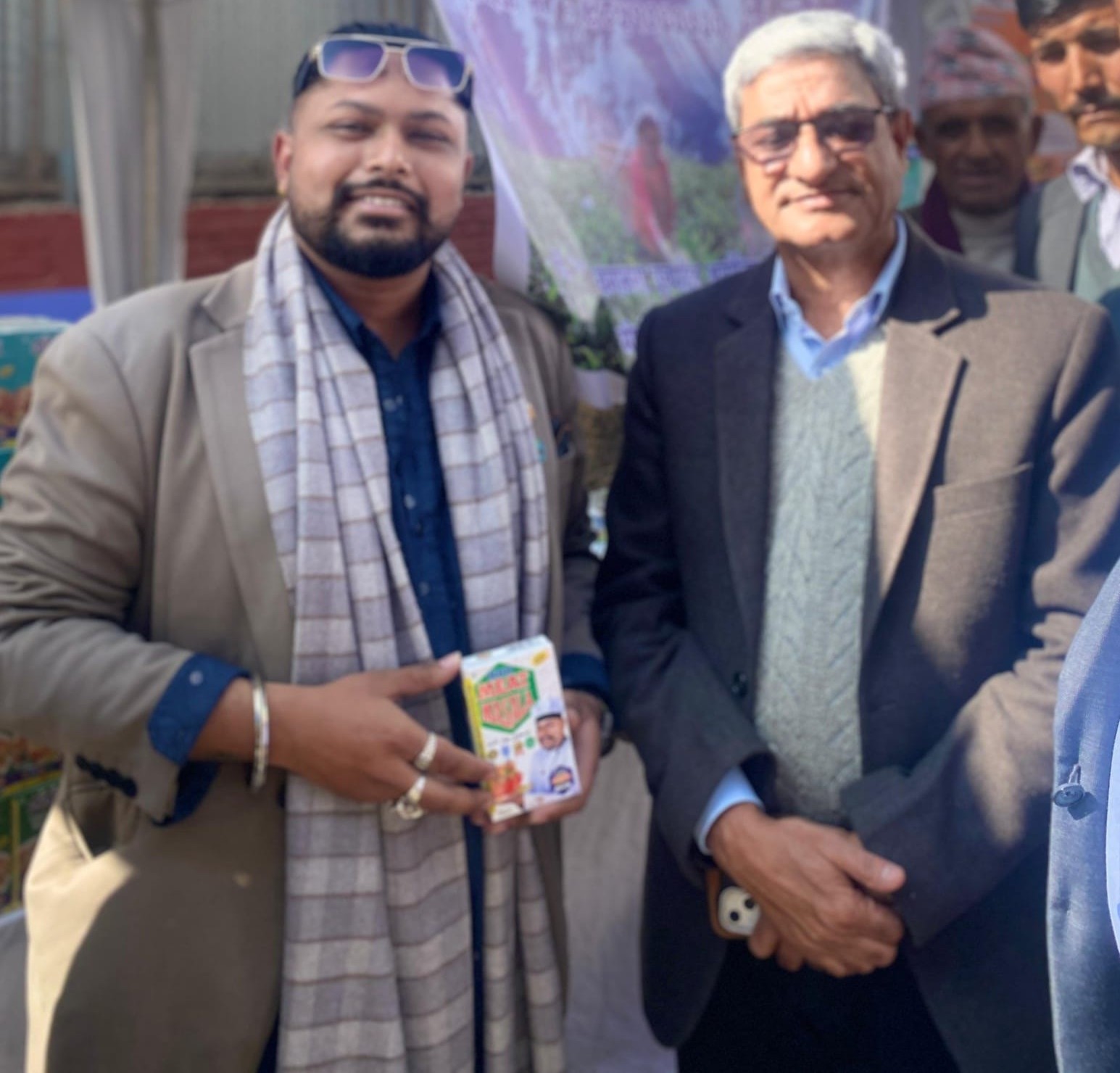
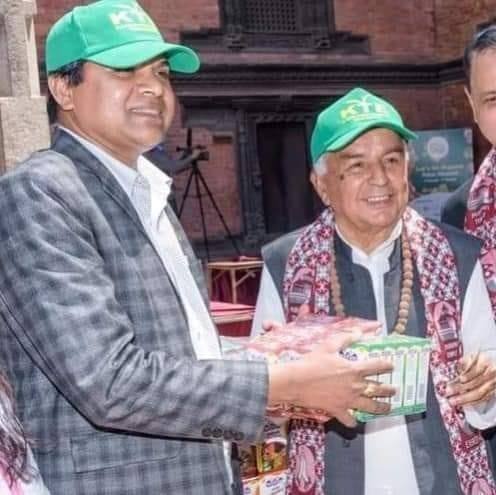
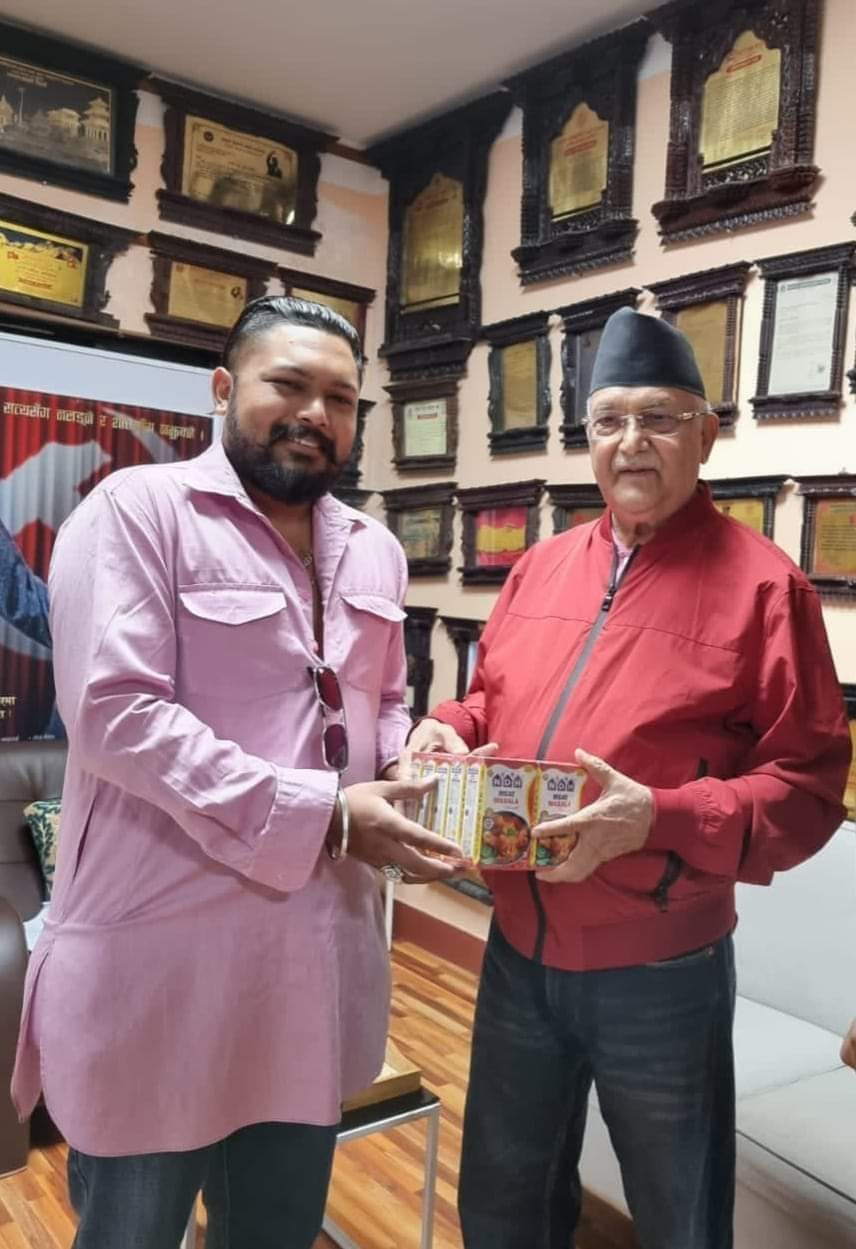
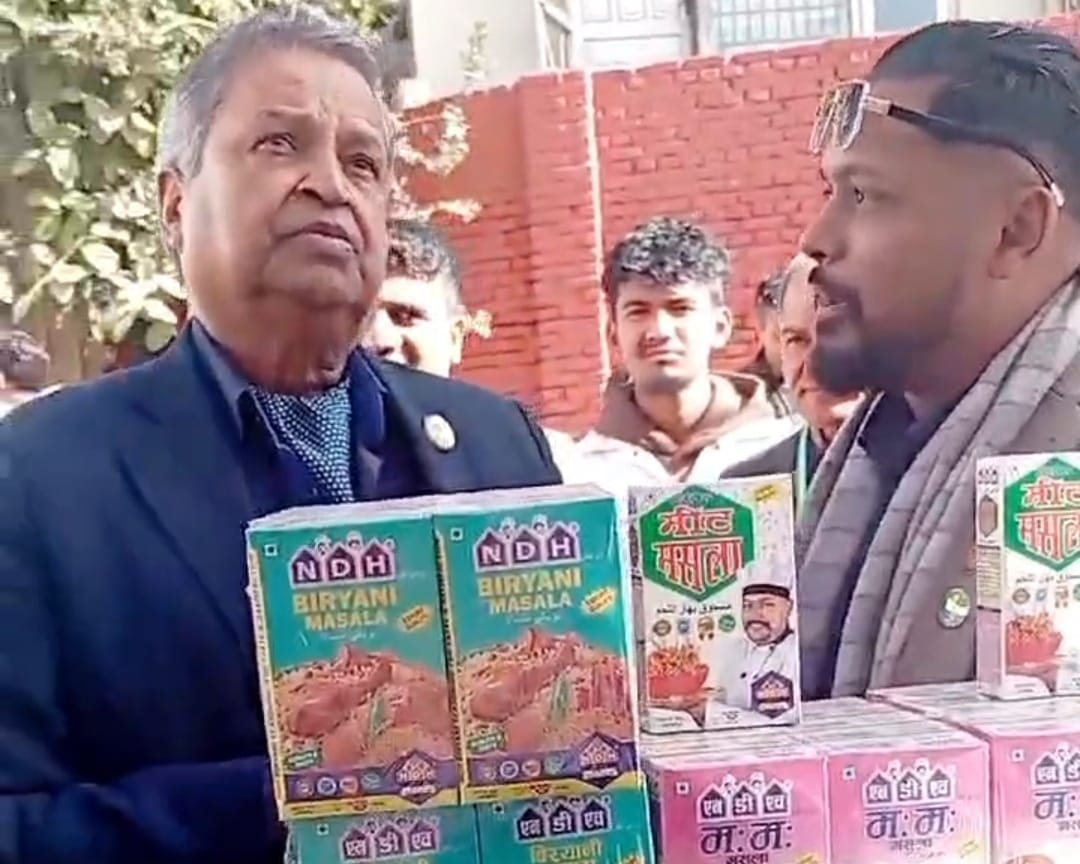
NDH





![From Kathmandu to the World: How Excel Students Are Winning Big [Admission Open]](https://nepalaaja.com/index.php/img/70194/medium/excel-college-info-eng-nep-2342.jpg)


